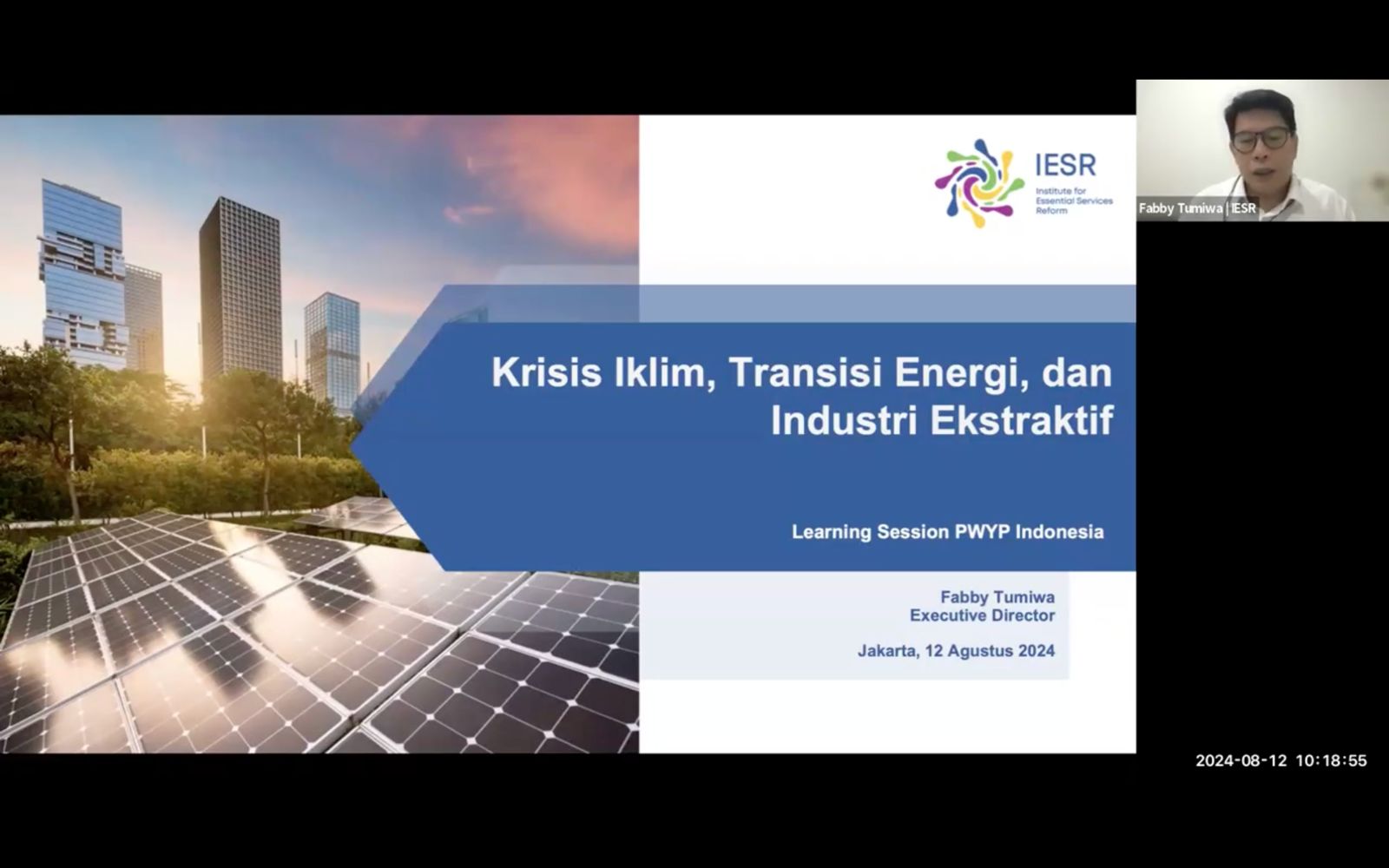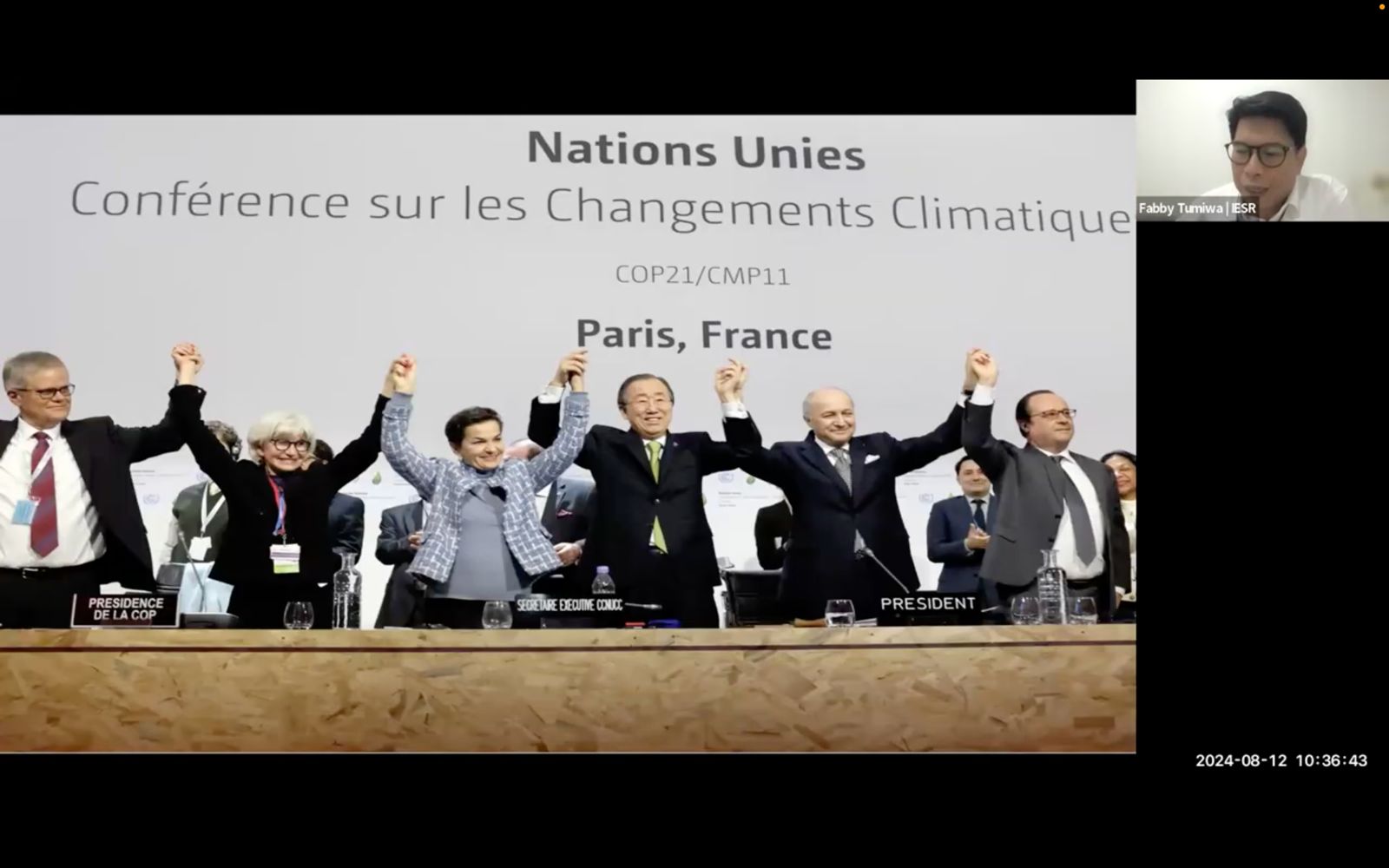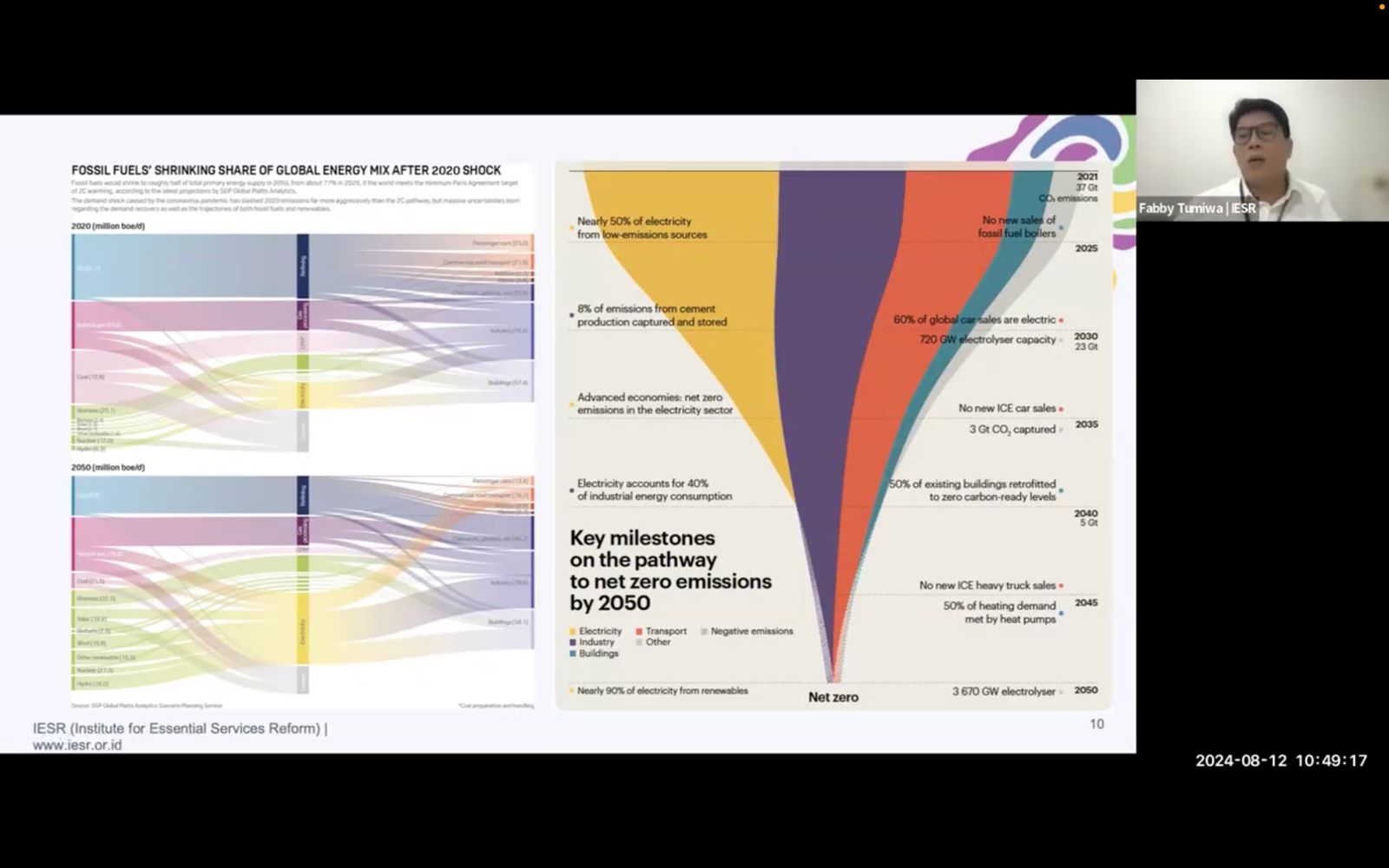Jakarta, August 12, 2024 – Climate change is one of today’s most significant challenges. To understand this challenge, Fabby Tumiwa, Executive Director of the Institute for Essential Services Reform (IESR) and a Steering Committee member of Publish What You Pay (PWYP) Indonesia from 2012 to 2020, spoke at a webinar themed “Climate Crisis, Energy Transition, and the Extractive Industry.” This webinar was part of the Road to RUA to the 5th PWYP Indonesia General Meeting event series. In his discussion, Fabby addressed various aspects of climate change, the history of adaptation and mitigation efforts, and the steps that must be taken to reduce its impact.
The atmosphere and greenhouse gases are critical in maintaining the Earth’s temperature stability. However, increased concentrations of greenhouse gases have led to significant climate change. These gases trap the sun’s heat in the atmosphere, causing the Earth’s temperature to rise. Scientists have warned about the threat of increasing greenhouse gases since the 1990s.
Fabby outlined the history of global efforts to tackle climate change, starting with the ratification of the UNFCCC (United Nations Framework Convention on Climate Change) and the first COP (Conference of the Parties) in Berlin in 1995. Under the Kyoto Protocol agreement, countries were required to reduce their emissions, though political dynamics led some countries, like the United States, to withdraw from the protocol.
However, COP 21 in Paris resulted in an important agreement known as the Paris Agreement. In this agreement, world leaders committed to keeping global temperature rises below 2 degrees Celsius and set a target to achieve Net Zero emissions by the middle of this century. In addition, each country committed to drafting a Nationally Determined Contribution (NDC) as part of global efforts to reduce emissions.
Indonesia has set ambitious targets in its NDC contribution. The government is committed to reducing emissions by 26% from domestic sources and 41% with international support. As of 2022, Indonesia has updated its NDC twice, with the latest target set in 2035.
However, Fabby warned that global greenhouse gas emissions have continued to rise, reaching 53 gigatons per year by 2023. If this trend continues, the remaining carbon budget will be exhausted within four years.
Coal and oil are the most significant contributors to greenhouse gas emissions in Indonesia. Therefore, the use of these fossil fuels must be drastically reduced.
Fabby also highlighted the difference in impact between a global temperature increase of 1.5 degrees and 2 degrees Celsius. One of the impacts is the melting of permafrost in Antarctica. If this permafrost melts, the methane gas trapped in it will be released into the atmosphere, accelerating sudden climate change and potentially causing even more significant damage.
According to Fabby, transitioning to renewable energy is the main solution to climate change. Based on the roadmap developed by the IEA (International Energy Agency), by 2050, at least 50% of global energy must come from renewable sources. No new coal-fired power plants should be built after 2025, and fossil-fuel-powered vehicles should be phased out by 2035. The world must fully transition to renewable energy by 2045 to achieve significant global temperature reduction targets.
To achieve this, global emissions must be reduced by 60-70% by 2030. However, many countries still need help to meet the targets set in the Paris Agreement. The world needs to reduce emissions by 23 gigatons to meet this target.
Indonesia also faces significant challenges in decarbonizing the energy sector by 2050. Although Indonesia’s per capita emissions are relatively low compared to developed countries, Indonesia ranks seventh among the world’s largest emitters.
Quoting the IEA, this decarbonization can be achieved with an ambitious yet realistic roadmap.
Indonesia has great potential to rely on solar energy as its primary source, mainly since it consists of islands. However, adequate infrastructure development is necessary to support the integration of this renewable energy.
Indonesia’s coal-fired power plants must retire before 2045 to ensure a more sustainable transition to renewable energy. In addition to environmental benefits, this transition can provide socioeconomic benefits for Indonesia, such as creating new jobs, meeting 100% of energy needs by 2050, and reducing energy consumption.
However, Indonesia still needs help mobilizing funding and attracting investors to support this energy transition. Additionally, the demand for metals and minerals, crucial in developing renewable energy technologies, is expected to increase significantly over the next 25 years. Although these minerals can be recycled, their exploitation must be carefully managed to avoid harming the environment and indigenous people’s rights.
Fabby Tumiwa emphasized that climate change is a significant challenge that must be faced collectively. Therefore, transitioning to renewable energy is the primary solution to reduce climate change’s impact and sustain our planet’s survival. However, significant challenges remain, particularly for countries like Indonesia, which must improve infrastructure, fund the energy transition, and manage natural resources wisely.
Writer : Ersya Nailuvar


